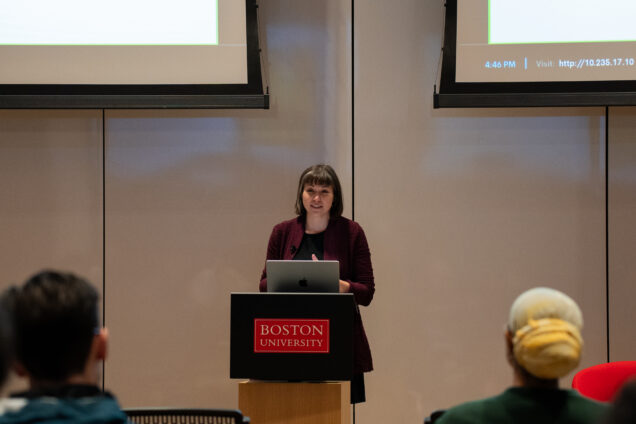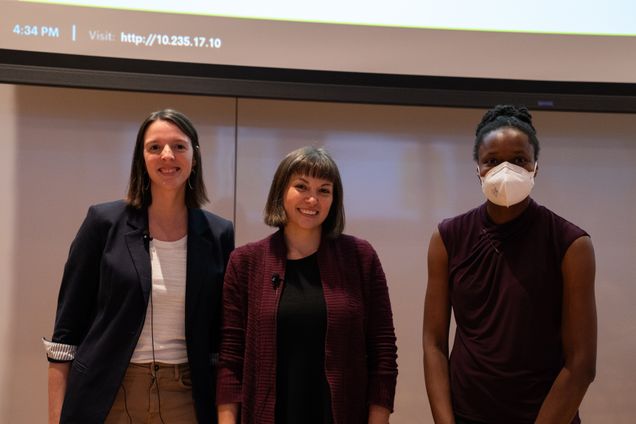New Surveillance Technologies ‘Change the Dignity of Work’
Karen Levy, author and Cornell University associate professor of information science, notes how the truckers’ experiences exemplify how AI and other technologies alter workplaces.
Most of us take the nation’s two million long-haul truck drivers for granted as they carry goods across the continent. But as more monitoring devices enter their cabs, and technology and transportation companies hail the benefits of automating these workers’ jobs, we should consider truckers’ experiences a leading indicator of the effects of surveillance and the introduction of artificial intelligence (AI) in the workplace, argues Karen Levy, an associate professor of information science at Cornell University.

That’s because while many of today’s policy discussions about the spread of AI and automation focus on whether and how many jobs will be lost, they should also consider how every job will change. While some jobs may go away, truckers’ experiences demonstrate how surveillance technologies are “changing the dignity that’s associated with that work,” said Levy.
“It does matter, certainly, to count jobs. And to say, what kinds of jobs should we expect? That’s definitely where the policy focus has been,” Levy said. “But it’s also equally important to track these indicators that are much harder to count. What is it to do this work? How does it feel to do this work? It’s harder to track something like worker dignity. But it’s just as important. And it’s arguably affecting a lot more workers than the people who are displaced from their jobs.”

Levy’s November 15, 2023, presentation, “Truckers, Technology, and the New Workplace Surveillance” was part of the Social Justice for Data Science Lecture Series, developed by Ngozi Okidegbe, Moorman-Simon Interdisciplinary Career Development Assistant Professor of Computing & Data Sciences and Associate Professor of Law, and Allison McDonald, Assistant Professor of Computing & Data Sciences. The series looks at the ways data science operates to advance, transform, and hinder justice-oriented movements by underrepresented and politically marginalized communities in different areas of life, and draw lessons that can help reorient the field of data science toward justice.

In her talk, Levy, author of Data Driven: Truckers, Technology and the New Workplace Surveillance(Princeton University Press, 2022), catalogued the technologies that now used and that are in development to monitor drivers’ performance. Electronic logging devices (ELDs), mandated by federal law, record driving and rest times. Cameras that face outward view road conditions. Cameras trained on drivers’ faces, equipped with AI, detect signs of fatigue. A cap can log brain activity (like an electroencephalogram) to scan for signs of inattentiveness. A headset can detect how often a driver checks the truck’s side mirrors.
The drivers – a group once dominated by labor unions, but not in recent decades – have resisted surveillance, including risking their jobs by smashing ELDs with a hammer, Levy said.
View the lecture and read more about the Social Justice for Data Science 2023 speaker series.
By Michael S. Goldberg, CDS Contributor